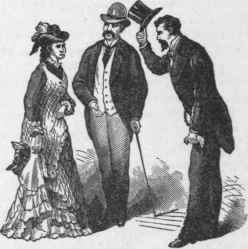I read so many people bemoaning the fact that our spelling is getting worse. And most seem to blame technology. I'm not sure that our knowledge of spelling is getting worse and I don't think technology is solely to blame if it is.
 The fact is that we write far more than we ever used to (and I think that's a good thing!). And also much of what we write is for public consumption. So of course mistakes are seen more. We are also ridiculously 'busy' with constant distractions, so the main problem seems to be that we don't take time to check what we've written. Even people who are complaining about other people's spelling let themselves down. I read this today:
The fact is that we write far more than we ever used to (and I think that's a good thing!). And also much of what we write is for public consumption. So of course mistakes are seen more. We are also ridiculously 'busy' with constant distractions, so the main problem seems to be that we don't take time to check what we've written. Even people who are complaining about other people's spelling let themselves down. I read this today:"Myself, i HATE to see spelling errors in texts that are supposed to have been proff-read."It's spell checkers that get singled out for most of the blame. I was sent an article on the subject today that I really want to respond to. So I'm going to!
You can read the article Technology Spell Check Leaves Many Adults Unable To Spell here or just read me ranting about it below.
The article starts off by claiming:
Technology has left many Britons unable to spell words like "definitely" and "separate", a survey has found. It suggests that the UK has produced an "auto-correct generation" that relies on computer spell checks. The poll, which questioned more than 2,000 adults, found that around a third could not spell "definitely" while a similar proportion failed to pick the right spelling of "separate". And around two thirds (65%) picked a wrong spelling for "necessary" from a list that did not include the right spelling.First objection: Lots of people couldn't spell 'definitely' and 'separate' long before computers were around. I remember only learning to spell 'definitely' when I realised it contained the word 'finite'.
Second: spell checkers and auto-correct are different things. The spell checker warns you that you might have spelled something wrong and encourages you to think about what you meant to write but auto-correct just changes it for you if you've written a string of letters that people often write meaning something else.
Third: I don't like their 'poll'. Asking people to choose the correct spelling when it is surrounded by wrong but plausible spellings is asking for trouble. You might automatically write 'necessary' correctly in a sentence, but when someone offers you the choice of the word with two 'c's or one 's', it makes you stop and think that maybe you were wrong. It plants the seed of doubt. So that's bad enough but here the list didn't even include the right spelling, so it sounds like people were tricked. By the way if you can't remember how to spell the word 'necessary', remember "It's necessary to have one coat (one 'c') and two socks (two 's's)".
The article goes on:
And many people are relying on spell checks - 18% said they use this all the time. Fewer than one in 10 (9%) said they never use a spell check.Umm ... what's wrong with using a spell check? I use one all the time too. It's a good strategy to catch your typos and words you're not sure about. In fact, what worried me about this was that 82% don't use one all the time. Try it, folks, you'll like it.
Sure there are people who can't spell well - lots of them - and it's a problem. But is it really getting worse or just more obvious? Whichever, I offer two suggestions:
1) Let's not teach children that English is spelled as it sounds (phonics) as more than 50% of it isn't. Yes, they need to learn sound-to-letter correspondences, but they also need to learn about the origins of words and look at a range of strategies for coping with the complexity that is English spelling. (See Teaching Spelling to English Language Learners for ways to do this.)
2) We should all (myself included) train ourselves to pause and check what we've written before pressing the Send button. And again we need more focus on this at school - editing.
So what about you?
- Do you agree?
- Do you have any proof that spelling has really got worse?
- How do you feel about spell checkers?
- And auto-correct?
- And phonics?

